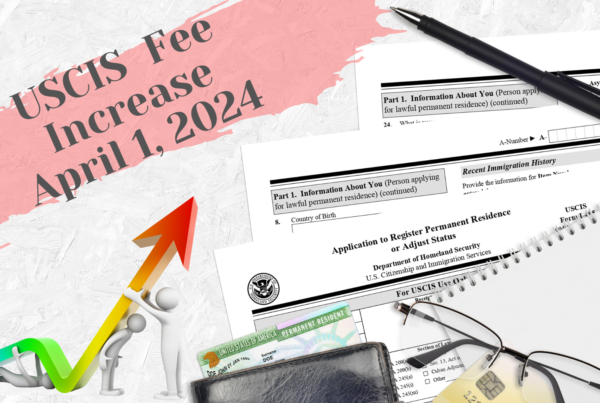Embarking on a journey to the United States involves a delicate balance between immigration rules and tax responsibilities. Whether you’re moving for personal, professional, or business reasons, understanding these key aspects is crucial. In this blog post, we’ll break down the essentials, focusing on what you need to know about US immigration and taxes and how your green card case can be approved.
The Head of Household Dilemma
When filing taxes as a married couple, understanding the implications of your immigration case is crucial. Do not file as head of household, this category suggests being the head of a household while not living with your spouse. Despite potential incentives from tax preparers to secure larger refunds, this approach can complicate your immigration interview for a marriage green card case. Immigration officers may request amendments to your tax return, and in worst-case scenarios, your case might be denied. Consultation with both a tax preparer and an immigration lawyer is strongly recommended to ensure your tax filing aligns with your immigration goals.
Self-Employment Income Matters
The financial affidavit of support, USCIS form I-864, plays a crucial role in immigration cases, especially for U.S. petitioners who want to obtain a green card for their spouse or other family member. If you’re self-employed or acting as a joint sponsor, it’s important to focus on your tax returns. Self-employed individuals often try to minimize their taxable income by maximizing business expenses. However, the adjusted gross income (AGI) is a key factor reviewed by USCIS, and it might not reflect the actual financial situation accurately. Even if your business generates significant income, a low AGI could make you ineligible as a financial sponsor. To navigate this, understanding the impact of self-employment tax strategies and seeking advice from professionals is essential to ensure your income meets the requirements.
The Significance of IRS Transcripts
Recognizing the significance of submitting IRS transcripts rather than tax return copies is crucial. Transcripts serve as official and readily verifiable documentation of your tax details directly from the IRS. By presenting transcripts, any uncertainty about the authenticity of your documents is dispelled, as USCIS acknowledges them as trustworthy proof of your income. Additionally, opting for transcripts streamlines the documentation process, diminishing the necessity for extra supporting materials and thereby minimizing the potential for manipulation or suspicion by immigration officers.
Conclusion
Navigating the intersection of taxes and immigration may seem complex, but understanding these crucial connections can significantly impact the success of your green card case. Ensuring your tax filing aligns with your immigration goals, carefully evaluating self-employment income, and providing IRS transcripts can streamline your case and demonstrate your eligibility to immigrate to the United States.
Remember, seeking guidance from qualified professionals in tax preparation and immigration law is crucial to ensuring compliance and avoiding unnecessary complications. By being diligent and addressing taxes as an integral part of your immigration case, you can open doors to opportunities and make your dreams of obtaining permanent residency in the United States a reality.









